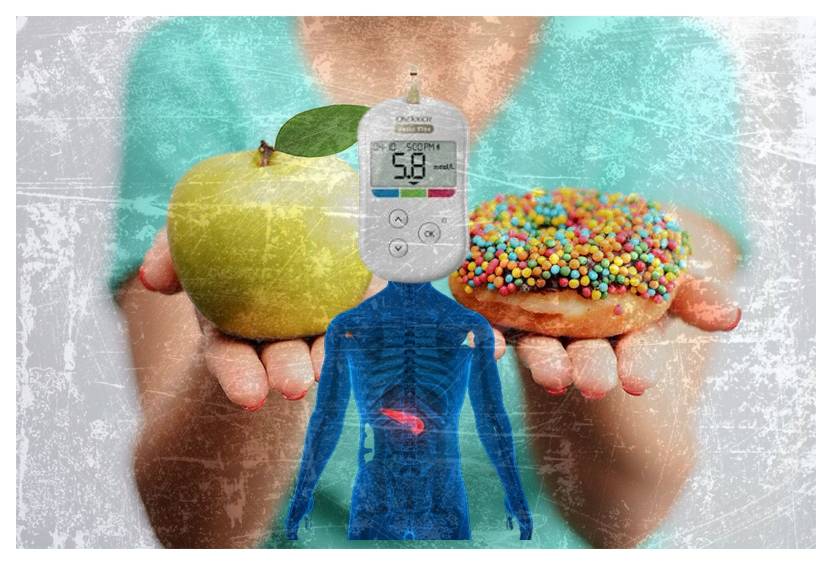Diabetes is a chronic health condition that affects how your body processes blood sugar (glucose). When you have diabetes, your body either doesn’t produce enough insulin (a hormone that regulates blood sugar) or can’t effectively utilize the insulin it produces. As a result, glucose builds up in the bloodstream, leading to high blood sugar levels.
Types of Diabetes ?
There are several types of diabetes, including type 1 diabetes, type 2 diabetes, gestational diabetes (which occurs during pregnancy) and other rare forms. Symptoms of diabetes can include increased thirst and urination, unexplained weight loss, fatigue, blurred vision, slow healing of wounds, and frequent infections.
Type 1 Diabetes
Type 1 diabetes also known as insulin-dependent diabetes or juvenile diabetes, is a chronic autoimmune condition. It happens when the immune system mistakenly attacks and ruins the insulin-producing cells in the pancreas. Insulin is a hormone that asist regulate blood sugar levels permit glucose to enter the body’s cells for energy.
As a result of the destruction of these cells people with type 1 diabetes have little to no insulin production. Without sufficient insulin glucose cannot be properly utilized by the body, leading to high blood sugar levels.
Type 1 diabetes typically develops in childhood or early adulthood.Although it can occur at any age. People having type 1 diabetes need regular insulin injections or the use of an insulin pump to organise their blood sugar levels. They also need to monitor their blood sugar levels closely and make dietary and lifestyle adjustments to maintain proper control.
Type 1 diabetes is a lifelong condition and while there is no cure it can be effectively managed with proper medical care insulin therapy, healthy eating, regular exercise, and monitoring blood sugar levels. It’s important for individuals with type 1 diabetes to work closely with healthcare professionals to develop a personalized treatment plan.
Type 2 Diabetes
Type 2 diabetes is a metabolic disorder characterized by high blood sugar levels due to insulin resistance or the body’s inability to use insulin effectively. It is the most common form of diabetes accounting for about 90-95% of all cases worldwide.
Unlike type 1 diabetes, type 2 diabetes is not an auto-immune condition. It develops when the body becomes resistant to the effects of insulin or when the pancreas does not produce enough insulin to meet the body’s needs.
Various factors can contribute to the development of type 2 diabetes including genetics, lifestyle choices, and certain medical conditions such as obesity. While it can affect people of any age, it is more commonly diagnosed in adults particularly those who are overweight or have a sedentary lifestyle.
Initially people with type 2 diabetes may not experience noticeable symptoms. However as the condition progresses, they may start to exhibit symptoms such as increased thirst, frequent urination, fatigue, blurred vision, slow healing wounds, and recurring infections.
Treatment for type 2 diabetes often involves lifestyle modifications, including healthy eating, regular exercise, weight management, and monitoring blood sugar levels. In some cases oral medications or insulin injections may be necessary to help control blood sugar levels.
It’s important for individuals with type 2 diabetes to regularly visit their healthcare provider take prescribed medications as directed and make necessary changes to their lifestyle to manage the condition effectively.
Gestational diabetes Type
Gestational diabetes is a type of diabetes that develops during pregnancy. It affects about 2-10% of pregnant women usually occurring in the second or third trimester. While it is temporary and typically resolves after childbirth.It requires careful management to ensure the health of both the mother and the baby.
During pregnancy hormones produced by the placenta can interfere with the action of insulin in the mother’s body. This creates insulin resistance causing high blood sugar levels. In most cases the pancreas of the mother can produce more insulin to compensate for this resistance. However in some women the pancreas cannot keep up with the increased demand resulting in gestational diabetes.
The condition does not usually cause noticeable symptoms. Therefore it is typically diagnosed through routine screening tests. Pregnant women may be asked to undergo an oral glucose tolerance test (OGTT), which measures blood sugar levels before and after consuming a glucose solution.
Having gestational diabetes can increase the risk of complications for both the mother and the baby. If left uncontrolled, it can lead to larger birth weight, premature birth, preeclampsia and an increased risk of developing type 2 diabetes later in life.
Management of gestational diabetes involves maintaining a healthy diet, monitoring blood sugar levels regularly, engaging in regular physical activity and in some cases, taking insulin or other medications as prescribed by a healthcare provider. Close monitoring during pregnancy helps ensure proper control of blood sugar levels and reduces the risk of complications.
After delivery blood sugar levels generally return to normal. However women who have had gestational diabetes are at an increased risk of developing type 2 diabetes in the future. Regular follow-ups with healthcare providers and lifestyle modifications can help reduce this risk and maintain overall health.
Managing diabetes involves making lifestyle changes such as adopting a healthy diet, engaging in regular physical activity, monitoring blood sugar levels, taking medications (if prescribed) and maintaining regular check-ups with healthcare professionals. It’s important to work closely with healthcare providers to develop an individualized management plan suited to your specific needs.
How to Cure From Diabties ?
Currently there is no known cure for diabetes. However the condition can be effectively managed and controlled through various methods. Here are some important steps to help manage diabetes.
Healthy eating:Follow a balanced diet that includes a variety of fruits, vegetables, whole grains, lean proteins and healthy fats. Avoid processed foods, sugary beverages and excessive intake of carbohydrates.
Regular physical activity: Engage in regular exercise as recommended by your healthcare professional. Physical activity helps improve insulin sensitivity and blood sugar control.
Medications and insulin: If prescribed by your doctor take medications or insulin as directed to manage your blood sugar levels. It’s important to follow the recommended dosage and schedule.
Blood sugar monitoring: Regularly check your blood sugar levels using a glucometer to stay aware of your levels and make necessary adjustments to your treatment plan.
Weight management: Achieve and maintain a healthy weight through a combination of proper nutrition and regular exercise. Losing excess weight can have positive effects on blood sugar control.
Stress management: Find healthy ways to cope with stress, as it can affect blood sugar levels. Engage in activities like meditation, deep breathing exercises or hobbies you enjoy.
Regular medical check-ups: Schedule regular check-ups with your healthcare provider to monitor your diabetes, discuss any concerns and update your treatment plan if needed.
Remember, managing diabetes is a lifelong commitment. By adopting healthy habits and following your healthcare team’s guidance.You can lead a fulfilling life while effectively managing the condition.



















